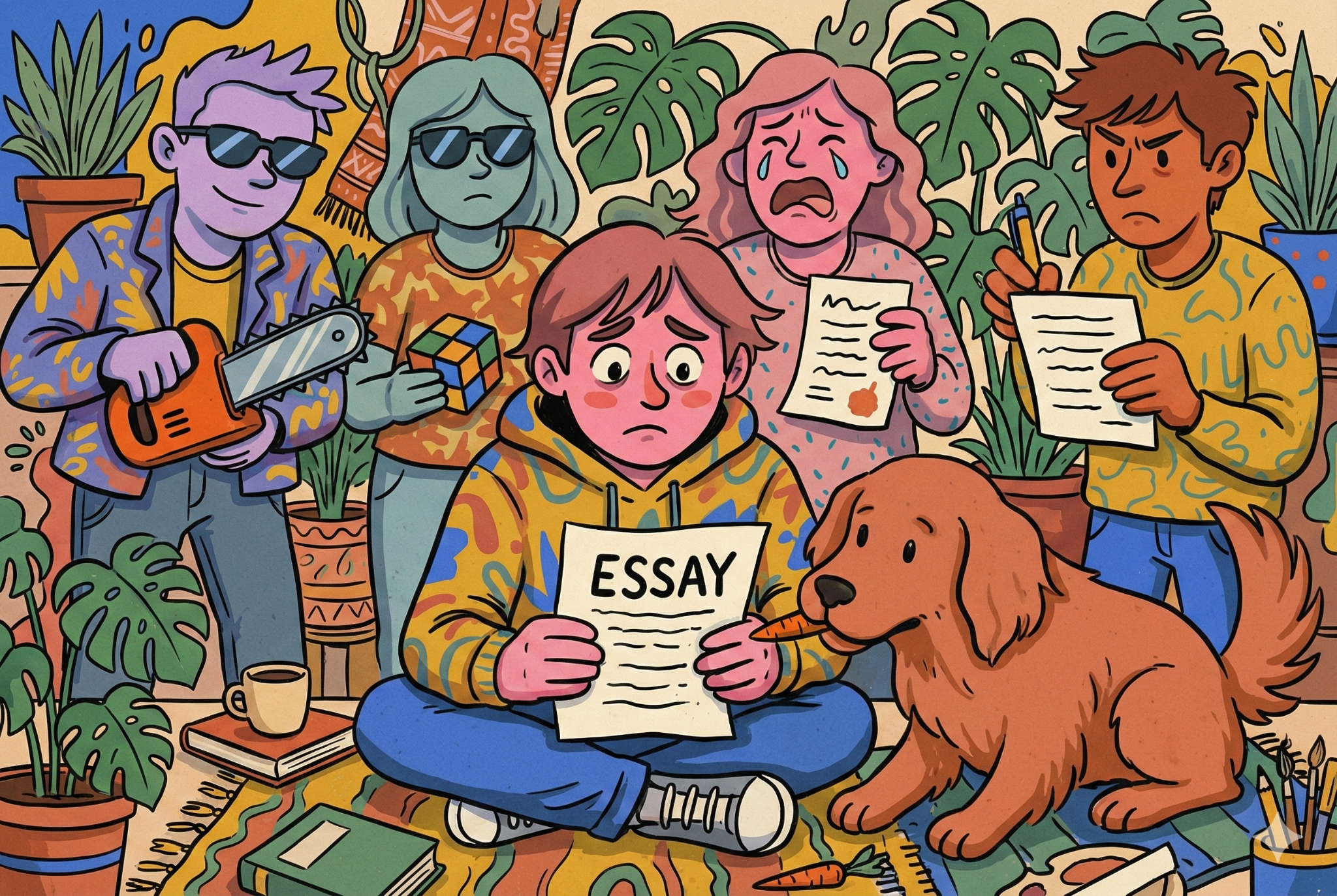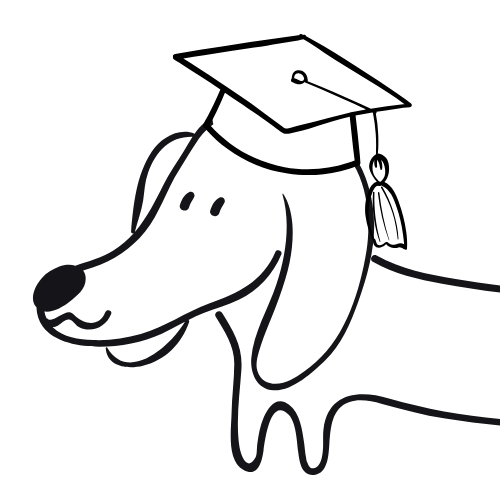
Don't Let Your Friends Read Your College Essay
Congrats, you finally wrote something!
Maybe it’s three messy paragraphs. Maybe it’s a draft you’re kinda proud of. Either way, you’re thinking about sending it to someone smart. Someone your age. Someone who “gets you.”
Stop right there.
Letting your friends read your college essay while you’re still figuring it out is one of the most common, well-intentioned ways to ruin your voice. I'm not saying this to be dramatic. There’s real, fancy-shmancy psychology behind why it backfires.
Early feedback makes your brain play small.
The second you ask, “Is this good?” your brain shifts into defensive mode.
Harvard researcher Teresa Amabile found that being evaluated too soon causes evaluation apprehension — a fancy way of saying your creativity tanks the moment you think you’re being judged. You start self-censoring. You strip out anything too weird, too personal, too real. (Weird, personal, and real is what gets on in.)
You know what gets stripped first? Your voice.
Your friends are not your audience.
This is where most people mess up. You’re not writing for your best friend. You’re writing for a stranger in admissions who’s read 700 essays this week and is begging — begging — for something that feels alive.
But when you show your draft to a peer, you unconsciously shift your tone to fit what they would write. That’s called audience design, and psychology research shows we do it constantly. It’s automatic. It’s social survival.
But it kills specificity. Generic essays are a death sentence.
Teenagers aren’t neutral readers. They’re anxious and competitive.
Social comparison theory (Festinger, 1954) explains how people use each other to measure their own value. Translation: your friend might not mean to make you spiral, but if they’re also applying to college, reading your essay might trigger all their insecurity.
Suddenly, their feedback isn’t really about your writing. It’s about how they feel reading it.
It's not that they don't want you to succeed. They do! However, this is an extremely personal time for them as well. They might be in a reactive, unhelpful state. A great essay might make them think, "Wow, I'm not getting into any school." When you have those thoughts, you give feedback like:
-
“I don’t really get it”
-
“Maybe start with a quote?”
-
“It’s kinda intense…”
That’s not critique. That’s projection. And it’ll make you start second-guessing things you should absolutely keep.
You need a private phase. Not a focus group.
Cognitive psychologist John Hayes studied creators across fields and found that their best work usually came after a “quiet period,” a.k.a a phase of incubation, where ideas could form without external noise.
Your first draft isn’t meant to be ready. It’s meant to be yours.
Yeah, it might be ugly and tender and slightly chaotic. Good. That means it’s real. Don’t shove it through the group chat like it’s a meme.
Let your voice grow legs before you parade it around.
Your friends don’t know what makes an essay work.
Being a good writer doesn’t mean you know what lands in admissions. Half of what makes a college essay great is strategy. Unless your friend moonlights as an admissions officer in their free time, they probably don’t understand how personal storytelling intersects with application politics.
At best, they’ll tell you if they “like it.”
At worst, they’ll flatten you into something forgettable.
Either way, it’s not helping.
So, who should read your essay?
When you’ve got a story that feels emotionally true, even if it’s still a little raw, you want someone who can read it with distance, skill, and zero ego.
Someone who knows how admissions officers think.
Someone who knows how to protect your voice while sharpening your story.
Someone who won’t project their own fear onto your process.
(Hi. That’s us.)

Post a comment